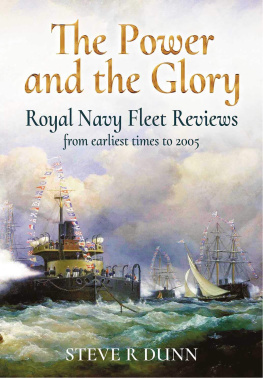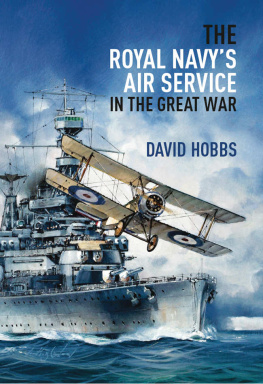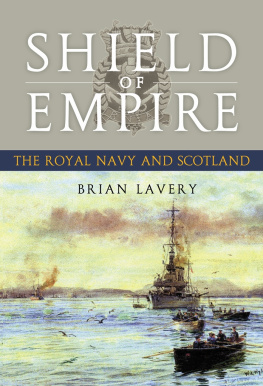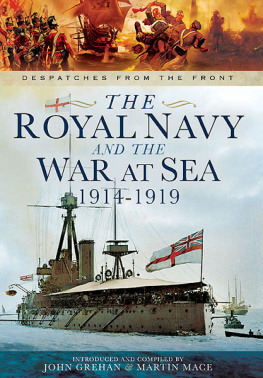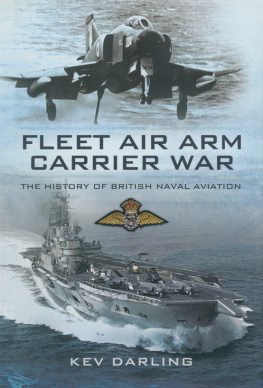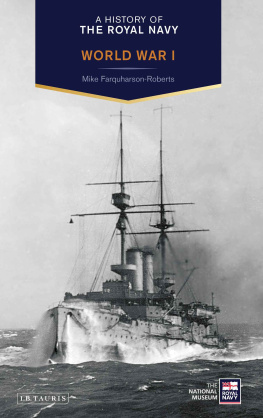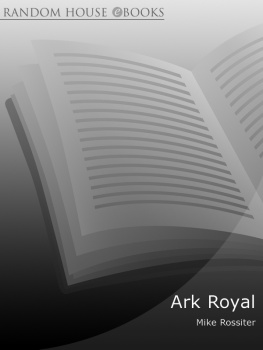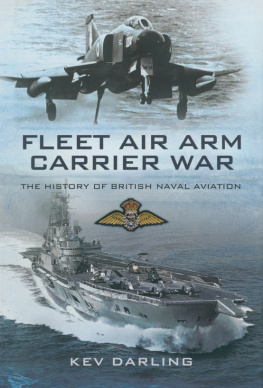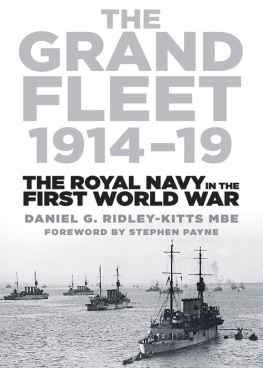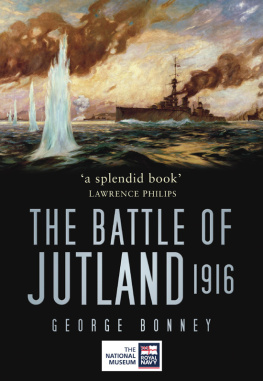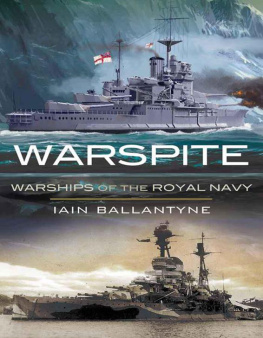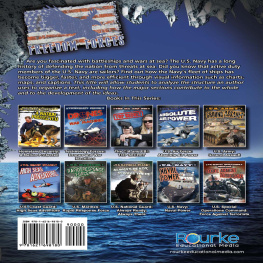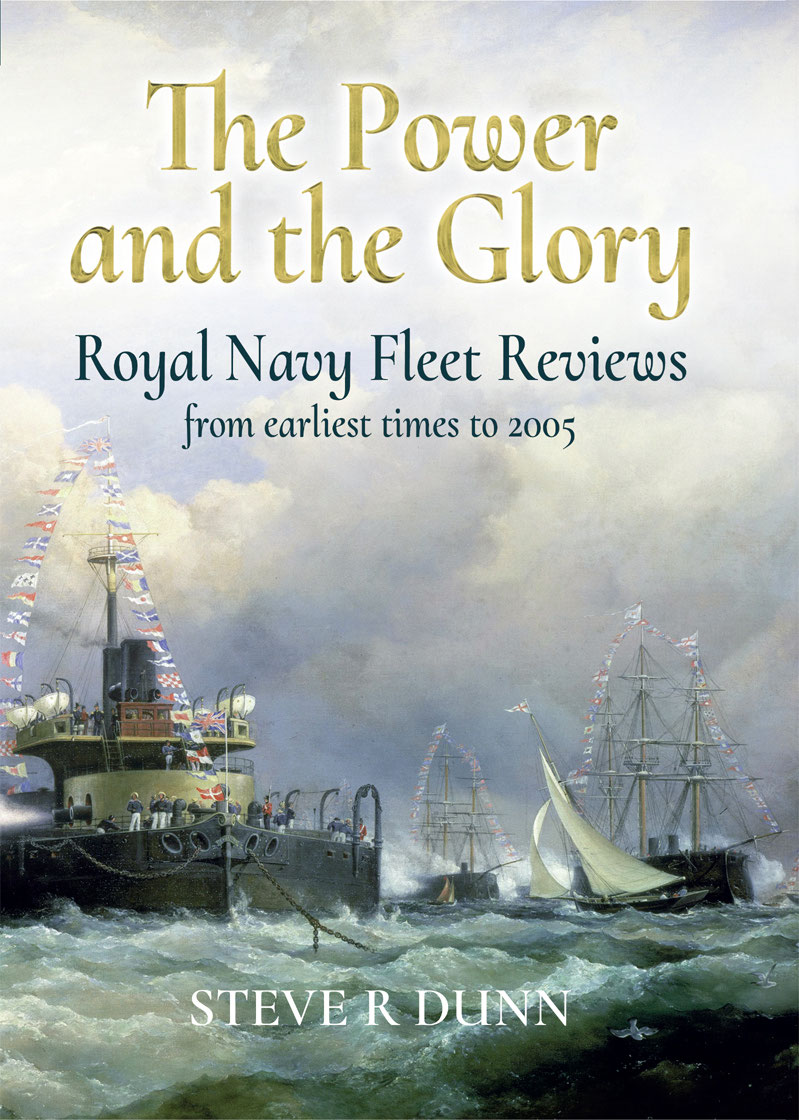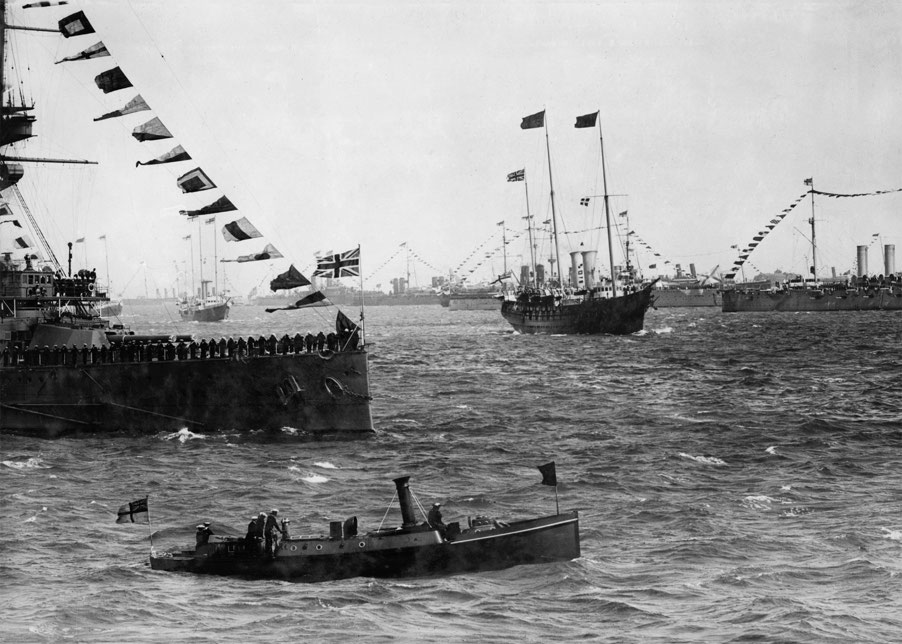The Power and the Glory
The royal yacht passing through the lines of warships during the Coronation Review of 1911. An admirals barge is in the foreground and a battleship to the left with decks manned and yards dressed. (Alamy KRD1JT)
The Power and the Glory
Royal Navy Fleet Reviews from Earliest Times to 2005
STEVE R DUNN
By the same author
Battle in the Baltic: The Royal Navy and the Fight to Save Estonia and Latvia, 1918-1920
Southern Thunder: The Royal Navy and the Scandinavian Trade in World War One
Baylys War: The Battle for the Western Approaches in World War One
Securing the Narrow Sea: The Dover Patrol 1914-1918
Blockade: Cruiser Warfare and the Starvation of Germany
Formidable: A true story of disaster and courage
The Coward? The Rise and Fall of the Silver King
The Scapegoat: The Life and Tragedy of a Fighting Admiral and Churchills role in his death
www.steverdunn.com
Copyright Steve R Dunn 2021
First published in Great Britain in 2021 by
Seaforth Publishing,
A division of Pen & Sword Books Ltd,
47 Church Street,
Barnsley S70 2AS
www.seaforthpublishing.com
British Library Cataloguing in Publication Data
A catalogue record for this book is available from the British Library
ISBN 978 1 5267 6902 2 (HARDBACK)
ISBN 978 1 5267 6903 9 (EPUB)
ISBN 978 1 5267 6904 6 (KINDLE)
All rights reserved. No part of this publication may be reproduced or transmitted in any form or by any means, electronic or mechanical, including photocopying, recording, or any information storage and retrieval system, without prior permission in writing of both the copyright owner and the above publisher.
The right of Steve R Dunn to be identified as the author of this work has been asserted by him in accordance with the Copyright, Designs and Patents Act 1988.
Pen & Sword Books Limited incorporates the imprints of Atlas, Archaeology, Aviation, Discovery, Family History, Fiction, History, Maritime, Military, Military Classics, Politics, Select, Transport, True Crime, Air World, Frontline Publishing, Leo Cooper, Remember When, Seaforth Publishing, The Praetorian Press, Wharncliffe Local History, Wharncliffe Transport, Wharncliffe True Crime and White Owl
Contents
Dedication
This book is dedicated to the men, women and boys of the Royal Navy, past, present and future.
Others may use the Ocean as their road
Only the English make it their abode.
Edmund Waller (160687), Of a War with Spain and a Fight at Sea.
Admirals all, they said their say
(The echoes are ringing still).
Admirals all, they went their way
To the haven under the hill.
But they left us a kingdom none can take
The realm of the circling sea
To be ruled by the rightful sons of Blake,
And the Rodneys yet to be.
Henry Newbolt, Admirals All, A Song of Sea Kings (1897).
The liberties of the people and the integrity of the Empire are deeply rooted in constitutional monarchy, and the ancient usages and traditions centring upon the crown have become a bulwark against dictatorship and the symbol of the union of all the members of the British Commonwealth of nations.
Resolution of the Select Committee on the Civil List, 26 April 1937.
Last summer green things were greener
Brambles fewer, the blue sky bluer.
Christina Rossetti, A Bird Song (1873).
Preface
AS AN ISLAND surrounded by sea, Britain (or more correctly England up until the Act of Union of 1707) has been perforce a maritime nation. Trade, fisheries, communication, defence and conquest abroad all played their role in the making of Britain. And all of these factors led ineluctably to the need for a navy to protect or project such drivers of national wealth and defence.
The navy that came into being was initially a very ad hoc affair, men and ships called to serve at their kings command from fishing and trading resources and dissolved and dispensed with by similar caprice. But slowly the navy, the so-called Navy-Royal from the time of Henry VIII, took a more formal shape and became increasingly part of the fabric of British society, war-making and eventual empire. The Stuart rulers, Charles II and James II, did much to create a structured and professional navy. And by the end of the reign of Queen Victoria, the Royal Navy was the most powerful fleet in the world, providing a career path for the gentry and aristocracy and occupying an important part in British life, self-belief and self-image, employment and wealth, and power projection.
With this naval pride came the Royal Fleet Review, which reached its zenith under Queen Victoria, King Edward VII and King George V. The review by British monarchs of their fleet had been an opportunity for pomp and ceremony since mediaeval times. It is difficult to put a precise date to the earliest formal review; but the assembly of ships before Edward III sailed for France and Crcy in 1346, and a similar massing of ships under Henry V in 1415 ahead of the campaign that led to Agincourt, can perhaps be accepted as the first reliably documented instances of English kings presiding over navies arrayed for their inspection and self-glory.
From then on, whether to impress or deter a foreign power, provide reassurance for domestic consumption or celebrate a sovereigns accession, British Royal Fleet Reviews were a regular and integral part of political posturing and national pride.
Rulers of potential (or actual) allies and enemies were invited to marvel at British prowess, and shudder at the risk of incurring the countrys wrath. The British public could revel in their nations naval superiority; advances in technology and ship design were showcased; and due homage paid to kings and queens at the head of their fleets.
The intention of this book is to tell the story of the Royal Fleet Review. Starting with an examination of the reasons for Britains need for, and close association with, a navy, the book goes on to explain the historical, political and technological context for British fleet reviews from the times of Edward III onwards. Edward was probably the first English ruler to aggressively assert his sovereignty of the seas and from his time onwards successive rulers (with a few exceptions) claimed this privilege for themselves and their fleet.
The Royal Navy reached its apogee of size and importance in the extended nineteenth century and The Power and the Glory examines this period in particular detail, taking an extensive look at the aims and ambitions of the twenty-one reviews in Queen Victorias and King Edward VIIs reigns and the subsequent eleven under George V, Edward VIII and George VI. Surely this was the era of Our Wonderful Navy the sure shield in peace and war.

